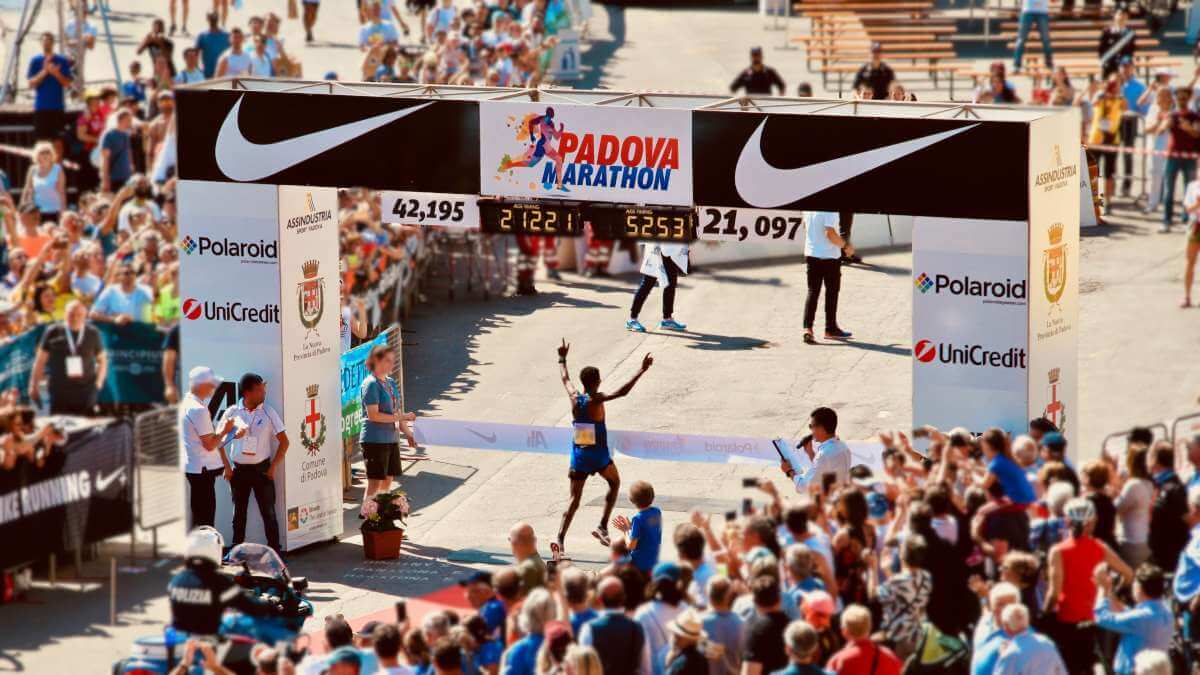When a runner embarks on their running journey, they usually aspire to participate in a Marathon race; well, at least once in their lifetime. As you probably already know, a Marathon race consists of a 26.2 miles (42.195 km) distance. Yet, even though this is a very challenging distance to run, it is of great historical importance.
Nowadays, Marathon events have become very popular around the world, and millions of people participate in various Marathon races; that is, in order to overcome the seemingly never-ending distance — along with their own limits!
Without a doubt, participating in a Marathon is a unique and memorable experience; and this stands for both the race and the training period before the event. Moreover, a Marathon event offers the opportunity for recreational or hobbyist runners to run side by side with top-class Marathoners. But, the question is yet to be answered…
Is running a Marathon that hard, after all?
Of course, the answer is NO! Generally speaking, a Marathon is not impossible to run, nor so difficult to complete; but only if the candidate Marathoner follows a structured training plan with consistency.
In some cases, however, a Marathon race can become a painful experience, along the way. And so a runner who decides to participate in such a demanding race must not take it for granted; nor overestimate their abilities. On the contrary, the candidate Marathoner must be aware of their physical status, and be mentally ready for the race.
Hence, preparation for participation in such an event is a must. Not so much for the athlete’s performance in the race itself; but mainly to ensure they’ll cross the finish line in good physical condition, and that they’ll enjoy every minute of it!
Preparing for a Marathon race
For an athlete to achieve what we’ve mentioned earlier, they need long-term preparation, especially if they’re a first-timer. A minimum of 16-20 weeks of devoted training — in order to build a solid aerobic base — is recommended; to wit, this should be done before starting to build the endurance required for the 26.2 miles.
That’s where an endurance coach comes into play. A coach can make the Marathon journey as smooth and fun as possible for their athlete. How? If anything, the coach possesses the necessary knowledge to minimize the chances of injury, while maximizing the athlete’s performance. In addition, they can give the necessary advice on nutrition, rehabilitation, and race tactics.
Taking important external parameters into account
At the end of the day, a Marathon race may not be such a difficult goal to achieve; but there are a few external parameters to take into account, that may affect the race. The 2018 Boston Marathon is a typical example; although, a theoretically easy route, the adverse weather conditions made it very difficult for all participants.
When participating in a Marathon, it’s not only important to consider the geographical terrain of the race (uphill, downhill, altitude difference); but also the predicted weather conditions for the day of the event. It is probable that the athlete will need to modify their tactics — or, even change them completely. Thankfully, a good coach can handle that.
Marathon race and training experience
One would think that a first-timer should choose an easy Marathon, in terms of ground morphology. Yet, as it often happens, many first-time participants choose races such as the Authentic Athens Marathon; which, by the way, we consider to be one of the most demanding Marathons, due to terrain peculiarities.
All in all, it would be wise to choose a more athlete-friendly Marathon, when competing for the first time; nonetheless, this is not set in stone. Again, what matters most, is proper preparation through professional coaching guidance.
Another common generality is that to be able to run a Marathon, one must have training experience in endurance sports. This is not true. Surely, a runner who has covered many kilometers, or has experience in 10 or 21 km races, will have a smoother transition to the Marathon distance. Noone can say with certainty that this runner will manage such an event better than an inexperienced participant. Truth be told, a Marathon race is full of surprises; anything can happen!
Improving performance
In order for a runner to fully prepare, they need to achieve musculoskeletal adjustments, first; so as to avoid injury and improve performance. Naturally, one can achieve this through a well-structured training program.
Apart from that, the body’s adaptations to training stimuli are also catalytic — physiology-wise. For example, some important adaptations are the Lactate Threshold increase, Maximum Aerobic Speed, VO2max, etc.
After ensuring that the entire training has been organized and monitored by a specialized endurance coach, the athlete should bear in mind a few more things. Having been immersed into the process of intensive training, they should not miss three — often overlooked — factors:
- Balanced, personalized nutrition
- Adequate sleep and rest
- Proper hydration
These are really important, as they will set the tone until the end of the race; as well as during the recovery phase. Finally, suitable sports equipment, such as a pair of good running shoes, also play a part in the athlete’s training.
Set your mind to the race
In conclusion, completing a Marathon race is not an unworkable goal. You just need dedication, determination, and discipline. You also need to get a specialized endurance coach who will guide you towards achieving this goal; and, at the same time, make sure you are protected from injuries. So, that’s about it. Remember, set your mind on the race, keep training, and you’ll do great! ✌
